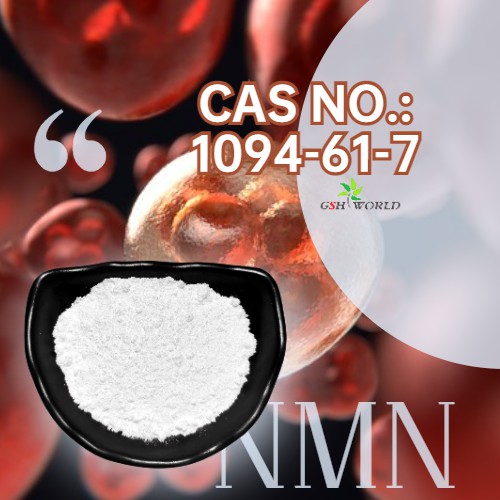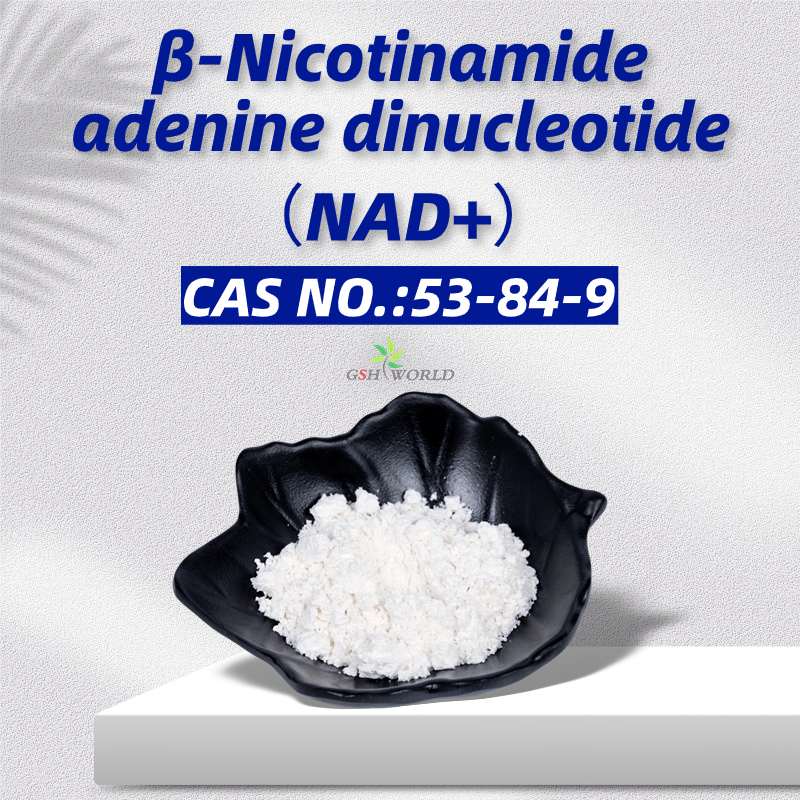Illuminating the Dawn of the Mind: NMN breakthrough in depression prevention
What is depression?
DEPRESSION is a mood disorder that causes a pervasive and prolonged feeling of low mood and loss of interest that affects how people feel, think, and act.
Depression is the fourth most common illness in the world and a widespread mental disorder, affecting an estimated 150 million people worldwide.
According to the American Psychiatric Association DSM-5, if you experience five to six or more of these emotional and physical changes for more than two weeks, it may be depression.
- Persistently low mood, feeling empty and worthless
- You lose interest in everything around you
- Hesitancy, difficulty in making decisions
- Less competent for previous jobs and tasks
- Can’t work hard
- Feel very tired
- Problems sleeping, insomnia/lethargy
- A surge/loss of appetite and significant weight change
- Changes in behavior (irritability/slowness of movement)
- Unexplained physical problems, such as back pain or headaches
- Lose self-confidence, feel useless, hopeless, worthless
- Avoid contact and conversation with others
- Out of my mind
- Cry a lot
- Abuse/misuse of drugs and alcohol
- Recurrent suicidal thoughts
While existing drug treatments have alleviated symptoms to some extent, they have limited effectiveness for many patients, making the development of new preventative treatments all the more important.
Nicotinamide mononucleotide (NMN) is an emerging candidate molecule that is gradually showing potential in preventing stress-induced depression.
Exploring NMN as a new treatment for depression
On June 3, 2024, a study published in BIOMEDICINE &PHARMACOTHERAPY, conducted by a research team at the Department of Physiology at Jinan University School of Medicine, explored the preventive effect of NMN on depression-like behavior induced by chronic social frustration stress (CSDS). Particular attention was paid to its important role in maintaining ATP levels in the prefrontal cortex (MPFC) of mice.
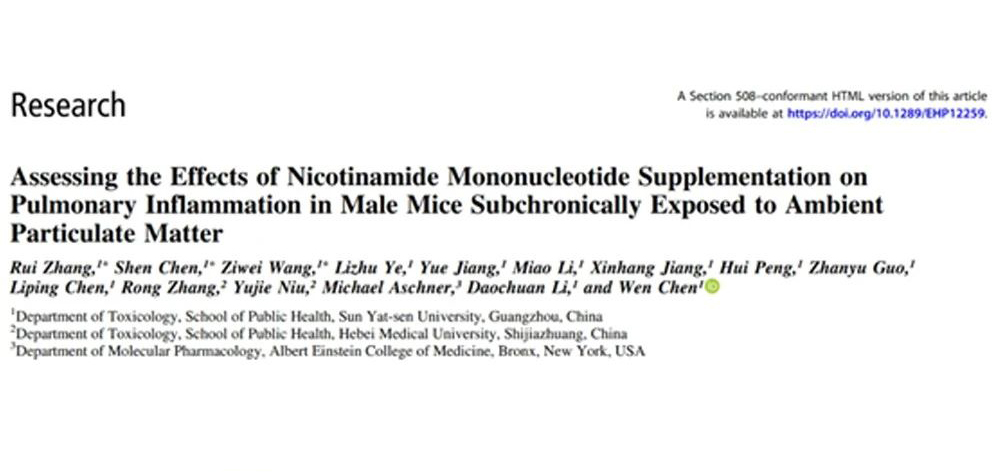
Experimental design
Male C57BL/6J mice aged 6 to 12 weeks were treated with chronic social frustration stress (CSDS) for 10 days.
The research team gave mice different doses of NMN(1050, 100MG/KG) by intraperitoneal injection and orally to evaluate its preventive effect on depression.
NMN increases capability level
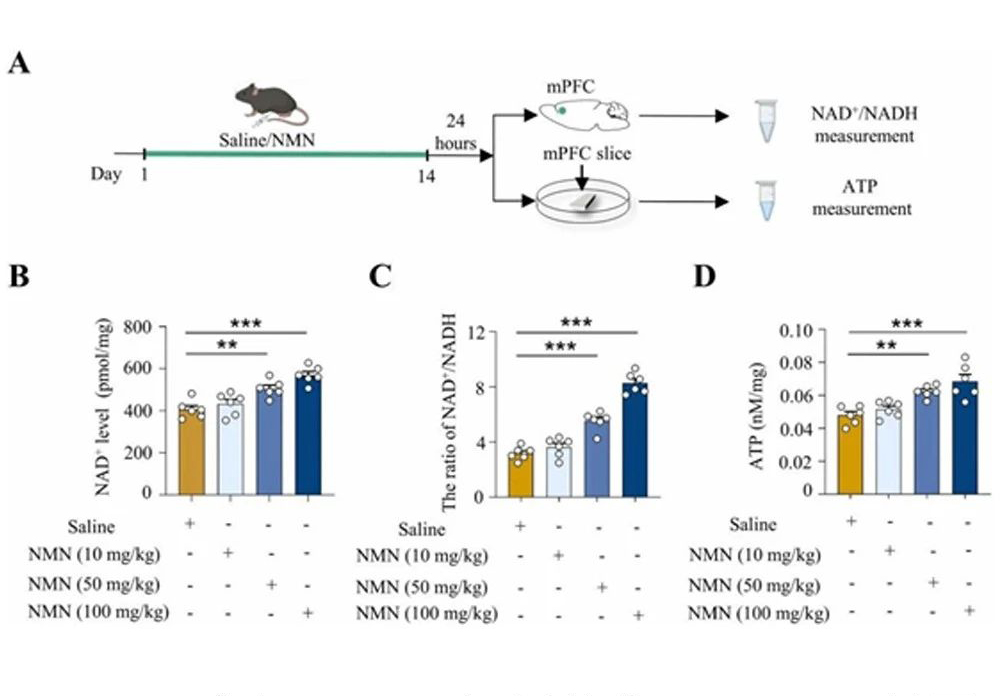
The study revealed that NAD+ levels in mice significantly increased by intraperitoneal injection of different doses of NMN(50 MG/KG and 100MG/KG) over a two-week period, indicating that Nicotinamide mononucleotide plays an important role in promoting cellular energy metabolism and maintaining energy balance.
The concentration of ATP in ACSF incubated with NMN-treated mouse MPFC sections significantly higher than that of the control group,
further demonstrating the potential of NMN in promoting ATP biosynthesis.
NMN prevents depression-like behavior
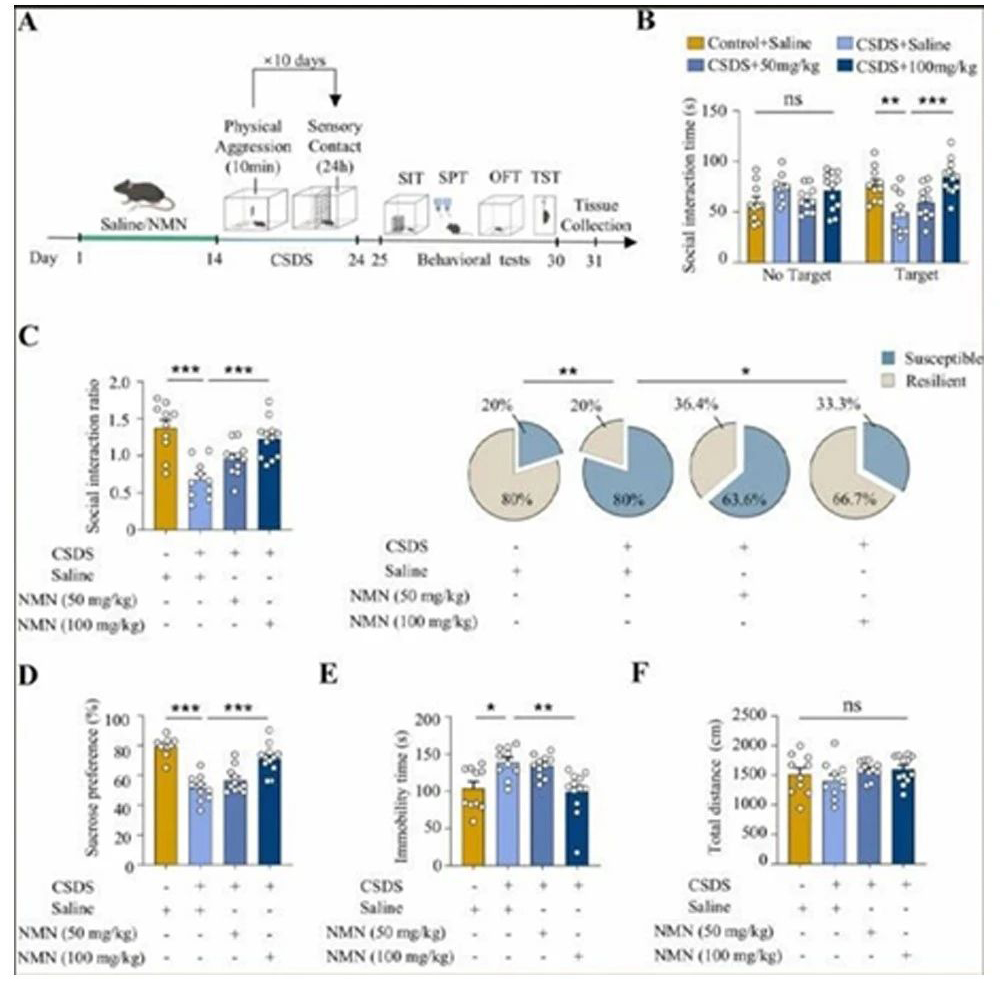
In-depth experimental studies observed that social avoidance and despondence-like behaviors caused by chronic social frustration stress (CSDS) were effectively prevented in mice treated with 100MG/KGNMN.
These mice showed a stronger willingness to interact socially on the social Interaction test (SIT),
a higher preference for sugar water on the sugar water preference test (SIT), and reduced time spent immobile on the dangling tail test (TST).
These results suggest that NMN can effectively reduce the development of depression-like behaviors
NMN protects nerve energy metabolism
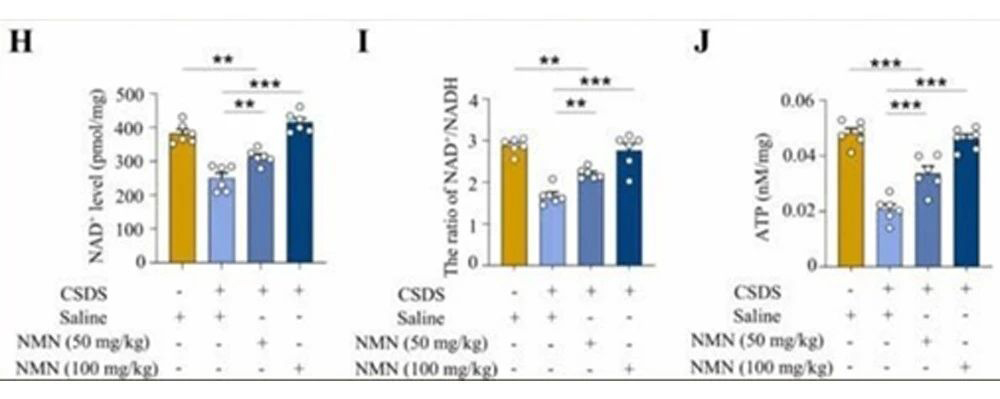
The protective effect of NMN not only effective in stressed mice, effective in unstressed mice.
Studies have observed that Nicotinamide mononucleotide at doses of 50 MG/KG or 100MG/KG can maintain normal levels of NAD+ and ATP in the MPFC of unstressed mice,
indicating the stabilizing effect of NMN on nerve energy metabolism. And may help maintain the integrity of brain function.
NMN regulates nerve transmission and excitability
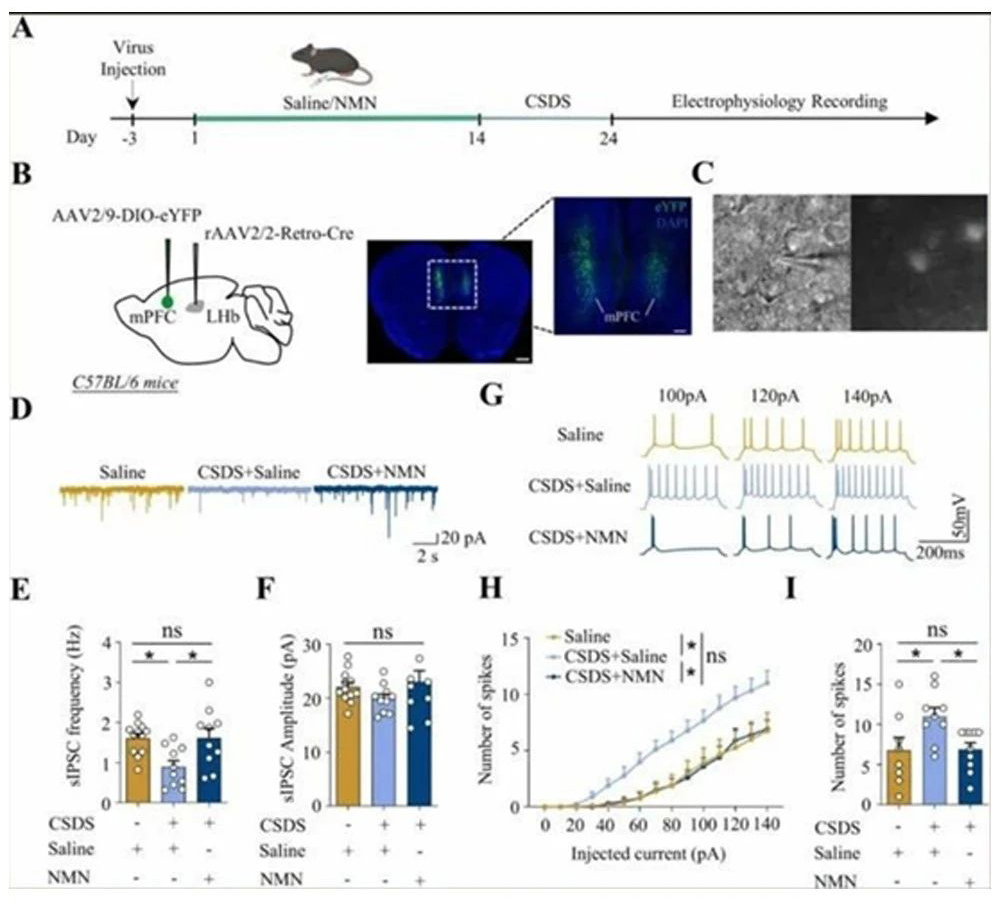
The study found that NMN able to restore normal nerve signal activity in the brains of mice under stress without making the signal too strong or too weak, thus helping the mice fight depression.
NMN maintains the balance of nerve signals by regulating communication within the brain.
Sum up
As a promising molecule, Nicotinamide mononucleotide has shown positive effects on brain health on multiple levels.
It not only protects mice affected by stress, maintains the stability of neural energy metabolism in unstressed mice, ensuring the integrity of brain function.
By regulating neurotransmission and neuronal excitation,
NMN effectively prevents stress-induced nerve signal transmission disorders, providing a new strategy for the prevention of depression.
reference
Deng J, Tong X, Huang Y, Du Z, Sun R, Zheng Y, Ma R, Ding W, zhang Y Liy, Sun Y, chen C, Zhang Jc, Song L, Liu B, Lin S. Prophylactic nicotinamide mononucleotide (NMN)mitigates cSDS-induced depressive-like behaviors in mice via preserving ofATP level in the mPFc, Biomed Pharmacother. 2024 Jul;176:116850.


